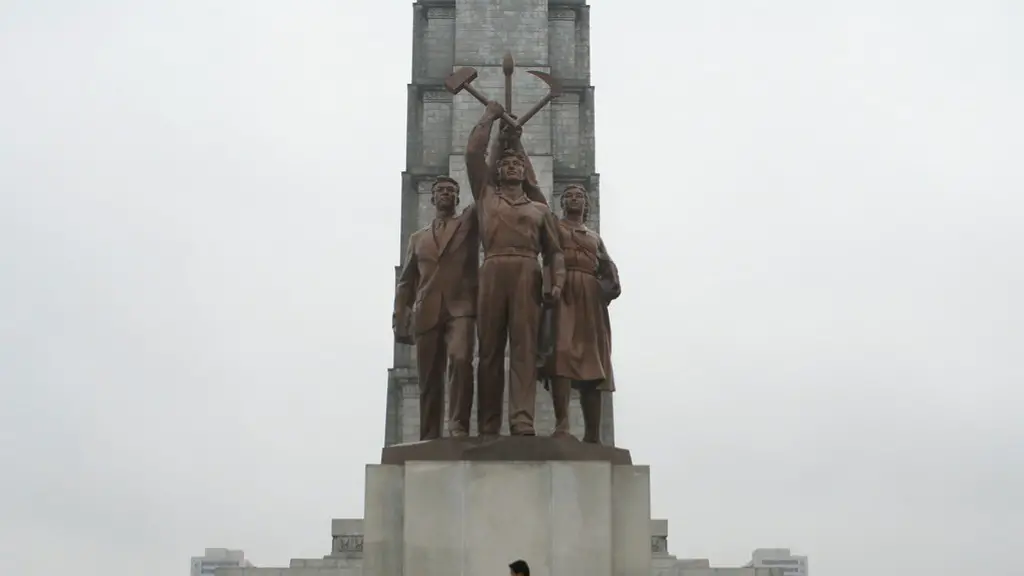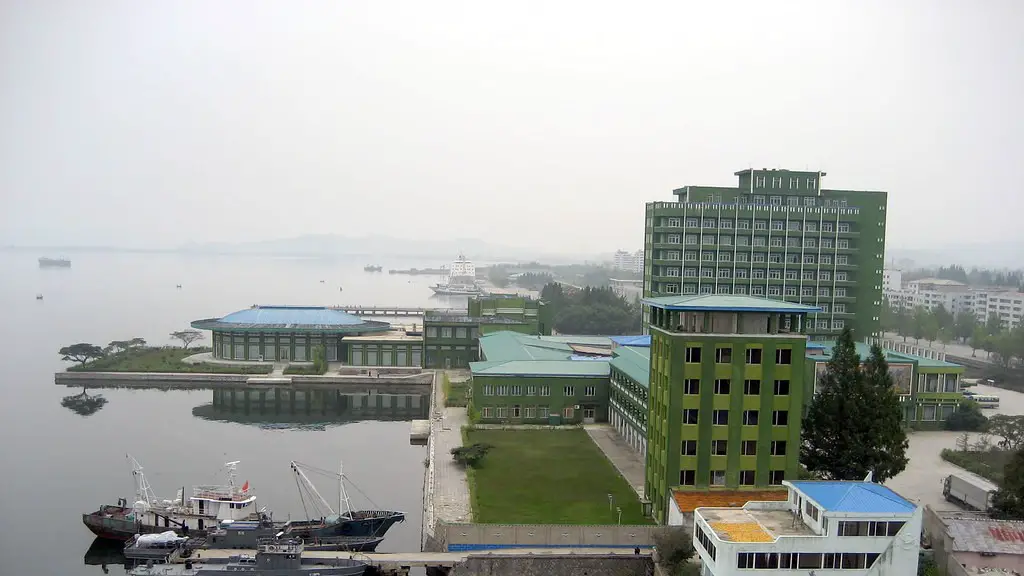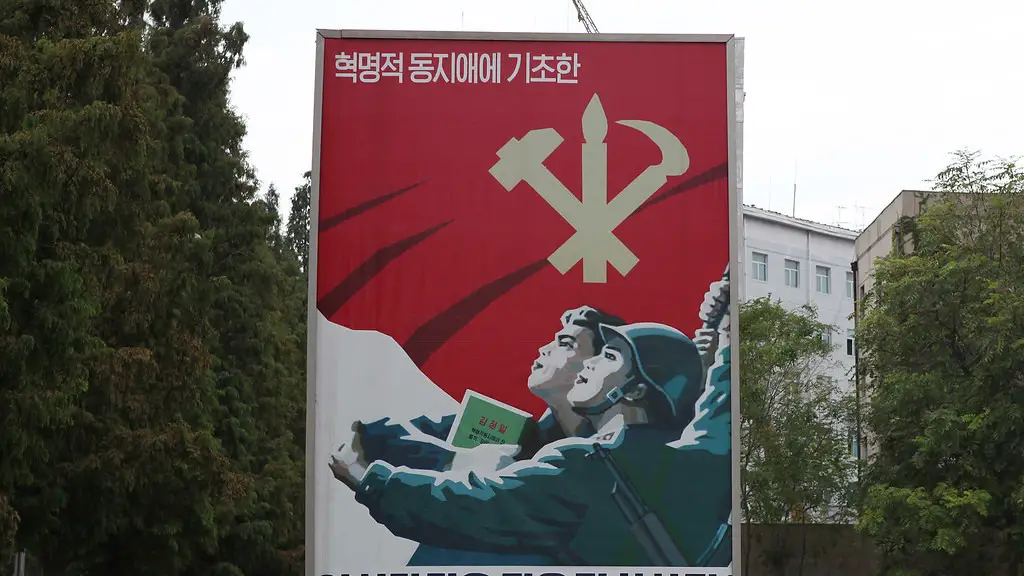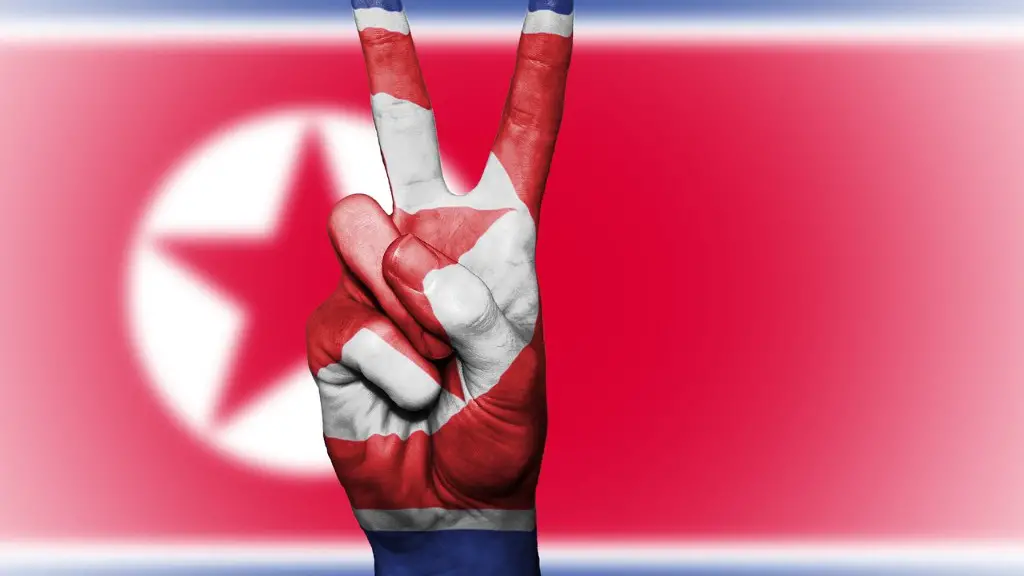Economic Isolation
North Korea is widely regarded as one of the most isolated nations on the planet. This is mainly due to the country’s struggle to transition from a closed economy to an open one. North Korea has resisted global economic integration and continues to reject foreign investment and trade opportunities. As a result, it has been left behind and not benefited from globalization or open trading arrangements, making it one of the few countries in the world that remain relatively dated and disconnected from the global economy.
The lack of economic engagement has limited the availability of resources and markets to North Korea. A combination of intransigence within the North Korean government and strict sanctions imposed by the United Nations Security Council has kept the country walled off from much of the rest of the world. Sanctions have largely been imposed on North Korea in order to force the government to change its policies, including the suspension of the country’s nuclear weapons program.
These restrictions have largely prevented North Korea from engaging in economic activities, including the introduction of technology that could potentially help to improve the country’s economy. This has made it difficult for North Korean citizens to access goods and services from abroad, placing a limit on their economic activities and opportunities.
At the same time, North Korea has also been excluded from participating in various global forums and institutions, including the World Trade Organization, further limiting its engagement and integration into the global system. As a result, North Korea remains largely dependent on its two primary allies, China and Russia, for access to the global market.
Experts argue that the continued isolation of North Korea is likely to have a major negative impact on its economy and its people. If North Korea were to open up its economy, it could potentially benefit from the influx of investment and technology. However, in the current climate, there seems to be little hope that this will occur.
Political Isolation
The North Korean government has long tried to assert its independence and autonomy from the international community. Its current leaders have adopted an aggressive stance against other countries, insisting that its demands are met without compromise. This has resulted in North Korea becoming increasingly isolated from the international community, and has been further aggravated by the increasingly belligerent behavior of its former leader, Kim Jong-un.
The government in North Korea has largely ignored international calls for open dialogue and has instead adopted a more confrontational approach. As a result, it has been alienating itself from the international community, including its primary allies, China and Russia. This has made it increasingly difficult for North Korea to build relationships with other countries and to gain access to the international market.
At the same time, North Korea has also been accused of sponsoring acts of terrorism and causing instability in international relations, which has further isolated it from the global community. This has led to the United Nations imposing sanctions against the country, which has in turn led to a further deterioration in its relationship with the outside world.
Experts suggest that the situation in North Korea could be improved if the government could be persuaded to abandon its aggressive stance and instead embrace a more cooperative approach with the international community. Many believe that if the North Korean government could be convinced to open its doors to the outside world, it would not only benefit North Korean citizens, but also the global community as a whole.
Humanitarian Crisis
North Korea’s isolation has had a deep and long-lasting impact on its people. The lack of access to the outside world has resulted in a serious humanitarian crisis, as the country has failed to meet the most basic needs of its people. This includes food, medicine, education, and other basic services.
The existing sanctions placed on North Korea have further deteriorated the economic situation, resulting in inadequate access to food, water, and other basic necessities. This has resulted in widespread malnutrition, poverty and inequality, with approximately one-third of the country’s population living in extreme poverty.
Due to the intense economic isolation of the country, it has also been impossible for humanitarian aid to be delivered. International aid organizations are subject to strict restrictions, making the task of delivering much-needed assistance almost impossible.
Experts argue that for the situation in North Korea to improve, the country must open itself to the outside world and allow international aid and investment to enter the country. This would provide desperately needed assistance to the citizens of North Korea and would allow the country to begin to address its most urgent needs.
Diplomatic Relations
In terms of diplomatic relations, North Korea has had little success in establishing a dialogue or relationship with other countries. The North Korean government has traditionally been hostile and unwilling to cooperate, instead issuing tirades and threats against its rivals. This has kept the country on the margins of international diplomacy.
North Korea has rejected overtures from countries such as the United States and South Korea, choosing instead to maintain an aggressive stance and to focus on developing its military capabilities. This has led to the United Nations Security Council imposing additional sanctions on the country, further deteriorating its relationship with the international community.
Experts suggest that if the North Korean government is willing to change its stance, there may be room for diplomacy. Many countries have offered to provide assistance to North Korea in exchange for improved diplomatic ties, but the government has so far refused to explore such opportunities. It remains to be seen if North Korea will be willing to make any compromises or concessions in order to improve relations.
Regional Tensions
North Korea’s isolation has also been reflected in its relations with neighboring countries. For example, North Korea and South Korea have been in a state of tension since the 1950s and now remain technically at war. North Korea continues to insist that it is the rightful and sole ruler of the Korean Peninsula and has refused to recognize the existence of the South Korean government.
This has kept the two countries in a state of near-constant conflict, with skirmishes and border disputes occurring on a regular basis. North Korea has also threatened to launch a nuclear attack on its southern neighbor, adding to the region’s instability.
Similarly, North Korea has had strained relations with China, its main ally and trading partner. Relations between the two countries have been strained for a number of years, partly due to China’s growing economic and political influence in the region. This has led to tension between the two countries, further alienating North Korea from the international community.
Experts suggest that improved relations between North Korea and its neighbors are necessary if the country is to begin to emerge from its current isolation. North Korea must be willing to engage in dialogue and compromise if there is to be any hope of improving its relations with the outside world.
Global Perception
The situation in North Korea has long been a source of global concern and criticism. The country has been accused of a myriad of human rights violations, including the restriction of basic freedoms and the detention and imprisonment of political dissidents. This has only served to further isolate North Korea from the international community and the global community has shown little sympathy for its plight.
In addition, North Korea has also been accused of sponsoring acts of terrorism and has been involved in a number of international conflicts and disputes, which has further entrenched its reputation as a hostile and rogue state. The country’s belligerent actions have only resulted in more intense international pressure and further sanctions, all of which have done little to improve its standing in the international community.
Experts suggest that if North Korea is to improve its global standing and begin to emerge from its isolation, it must take steps to address the concerns of the international community. North Korea must be willing to engage in dialogue, open its doors to the outside world, and implement changes to its policy in order to move towards a more cooperative approach with other countries.
Long-term Implications
North Korea’s continued isolation carries significant long-term implications for the country and for the global community. Without access to much needed resources and information, the citizens of North Korea are at risk of living in a state of stagnation and economic decline. This not only has an immediate impact on their lives, but could also result in increased poverty and inequality in the future.
At the same time, North Korea’s continued isolation and aggressive stance carries the risk of inciting further international conflict and instability. This could have disastrous consequences and could threaten global peace and security.
Experts suggest that the situation in North Korea can only improve if the country is willing to take steps to open its doors to the outside world and embrace a more cooperative approach with other nations. Until then, North Korea will remain isolated and its people will continue to suffer the consequences.





